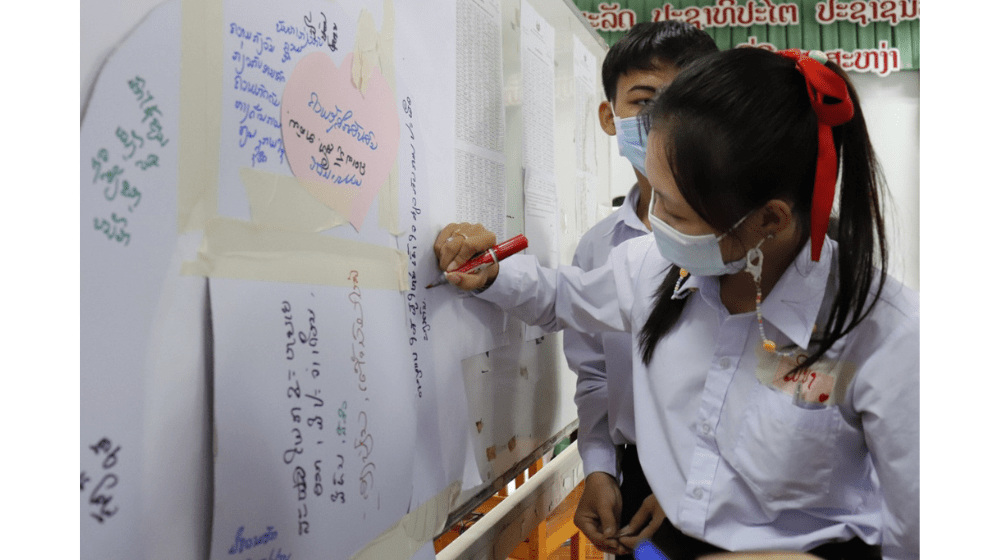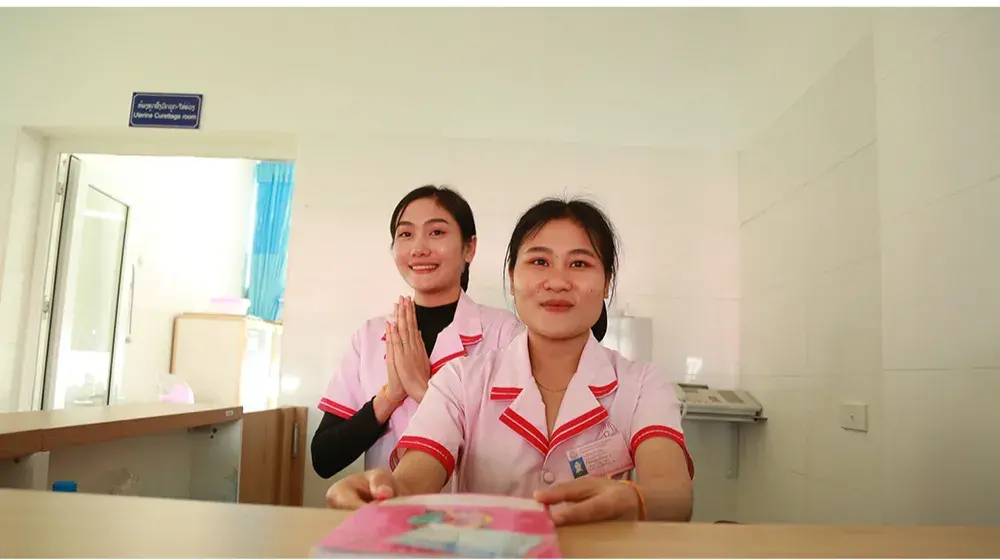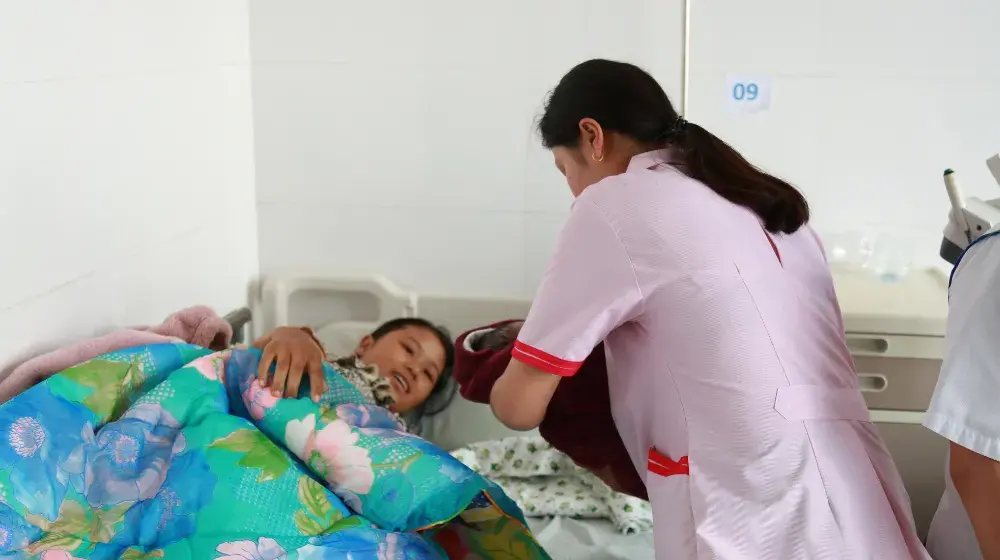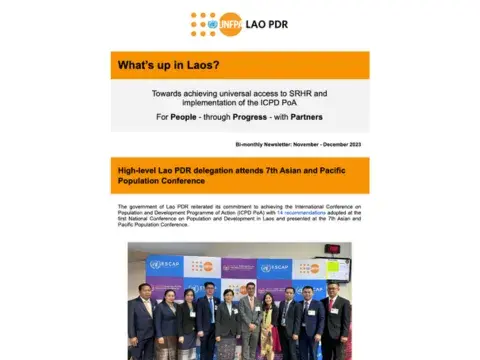In response to the COVID-19 Pandemic, the United Nations Population Fund (UNFPA), UN-HABITAT and International Organization for Migration (IOM) collaborated to implement the UN Joint Programme (UNJP) “Protection and Services for Vulnerable settlements, Migrants, and Youth in Savannakhet and Champassak”, with financial support from the Swiss Agency for Development and Cooperation (SDC), under the coordination of the Ministry of Planning and Investments.
Implemented in Champasak and Savannakhet provinces since 2021, the three UN agencies with respective Government counterparts have directly and indirectly reached more than 800,000 people (approximately 300,000 people are direct beneficiaries which consist of around 190,000 female beneficiaries including migrant returnees, internal migrant workers, displaced or stranded migrants and victims of human trafficking, pushback cases (those being returned from Thailand), adolescents and youth, GBV victims, women and men) through the interventions during 2021. Building on each other's comparative areas of expertise, the agencies delivered a variety of innovative interventions in support of vulnerable youth and communities. UN Habitat completed a vulnerability assessment, which guided the UNJP partners in identifying the communities most affected, while UNFPA provided technical support to the programme partners for ensuring Gender Responsive Planning and interventions across the programme. Building on the collaboration and synergies from more than 20 entities, partners then delivered specific interventions.
Sexual and Reproductive Health, Mental health and Psychosocial support for young people
During 2021, over 54,000 (46,325 females) adolescents and young people were reached by trained service providers who were able to provide non-judgmental and confidential reproductive health services. The service providers conducted mobile outreach to reach those who could not come to the facilities.
“It is a sensitive topic, so we have to ensure confidentiality and respect their decisions. We provide information about Sexually Transmitted Infections and family planning methods so that they understand and can make an informed decision,” said Ms. Kittikhoun Tengsuliwan, a health staff at Kaisone district, Savannakhet province, who was trained on Adolescent Youth Friendly Services (AYFS). She said the district facility received an average of 10 young clients per day.
These clients included Ms. Kongnang Xayalath: “I was embarrassed to talk about it [SRH] initially, the provider was very friendly, and it made me feel at ease to speak with her. I learned how to protect myself and prevent unplanned pregnancy.”
Recognising the need for remote and digital services, UNFPA also reinforced the 24/7 telephone hotlines (service provision and personnel) and almost 9,623 adolescents and young people (5,080 were females) contacted the counselling hotlines run by the Vientiane Youth Centre, the Lao Women Union and the Lao Youth Union’s counsellors. In addition to the hotline, LYU, VYC and LWU conducted outreach activities and reached more than 16,000 beneficiaries.
Improved Water Sanitation and Hygiene (WASH) infrastructure and services to prevent COVID-19
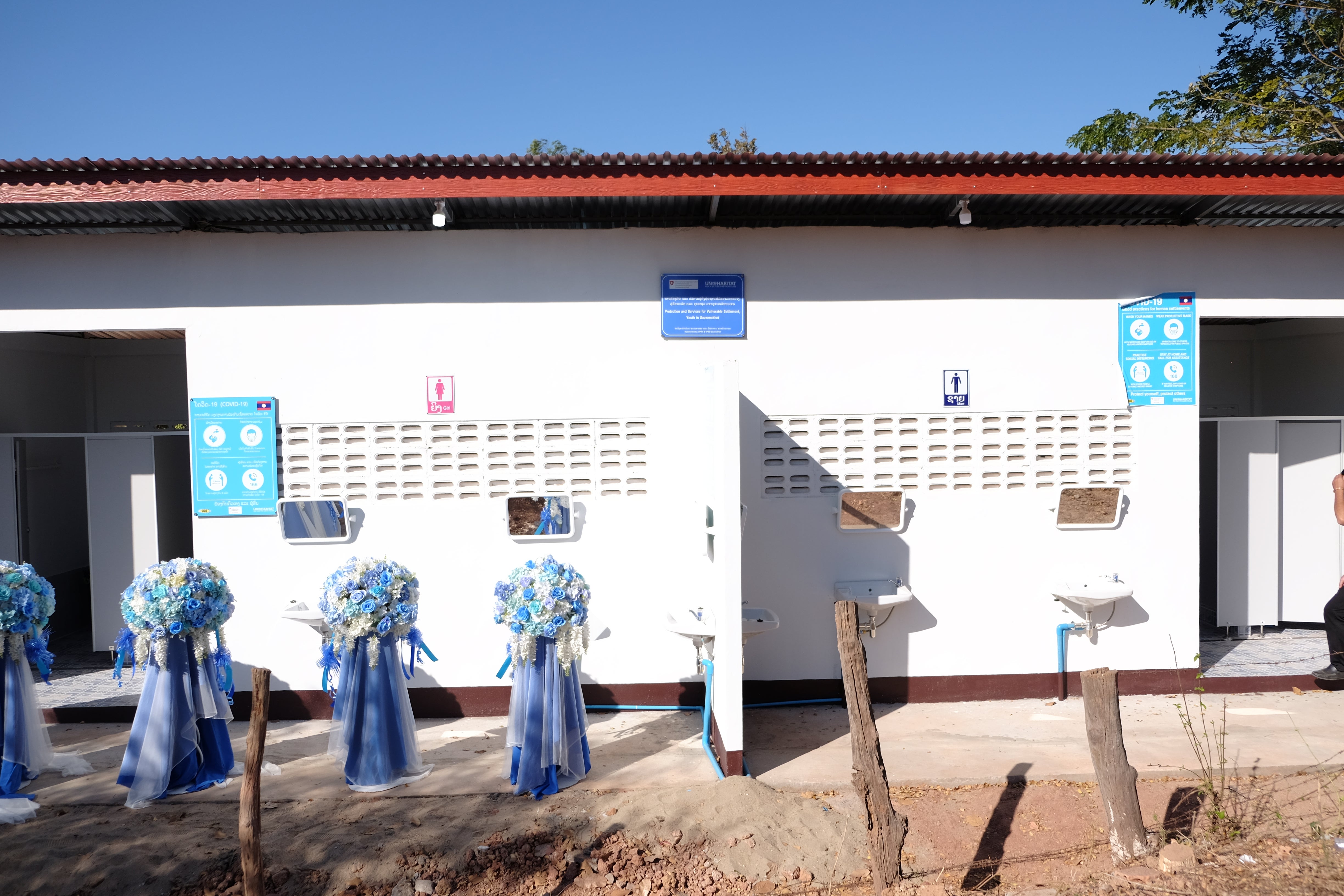
UN-Habitat in 2021 improved gender responsive WASH infrastructure and services at seven quarantine centres in Songkhone district, Savannakhet province and four more in Phonthong and Pathoumphone districts in Champasak province.
“Prior to UN-Habitat’s intervention, we encountered many WASH-related problems. This was the first project which provided detailed surveys and water and sanitation assistance, such as the water system, storage tanks, sinks, hand-washing stations and toilets, for those who came to stay in the quarantine centre to fight COVID-19,” said Mr. Viengsamai Khaisavatdee, Director of the KM21 centre, in Champasak province.
Staff capacity at the centres, provincial and field hospitals was strengthened to improve WASH practices. These improved facilities and WASH system will continue to be accessed by communities for years to come.
Through additional support from the project, 430 households in the Dongbak camp and Sanamxay Shelter in Attapeu province were able to improve their hygiene practices, well-being and contribute to the preventative spread of COVID-19.
Safe migration, skills development and access to work for returning migrants and their communities
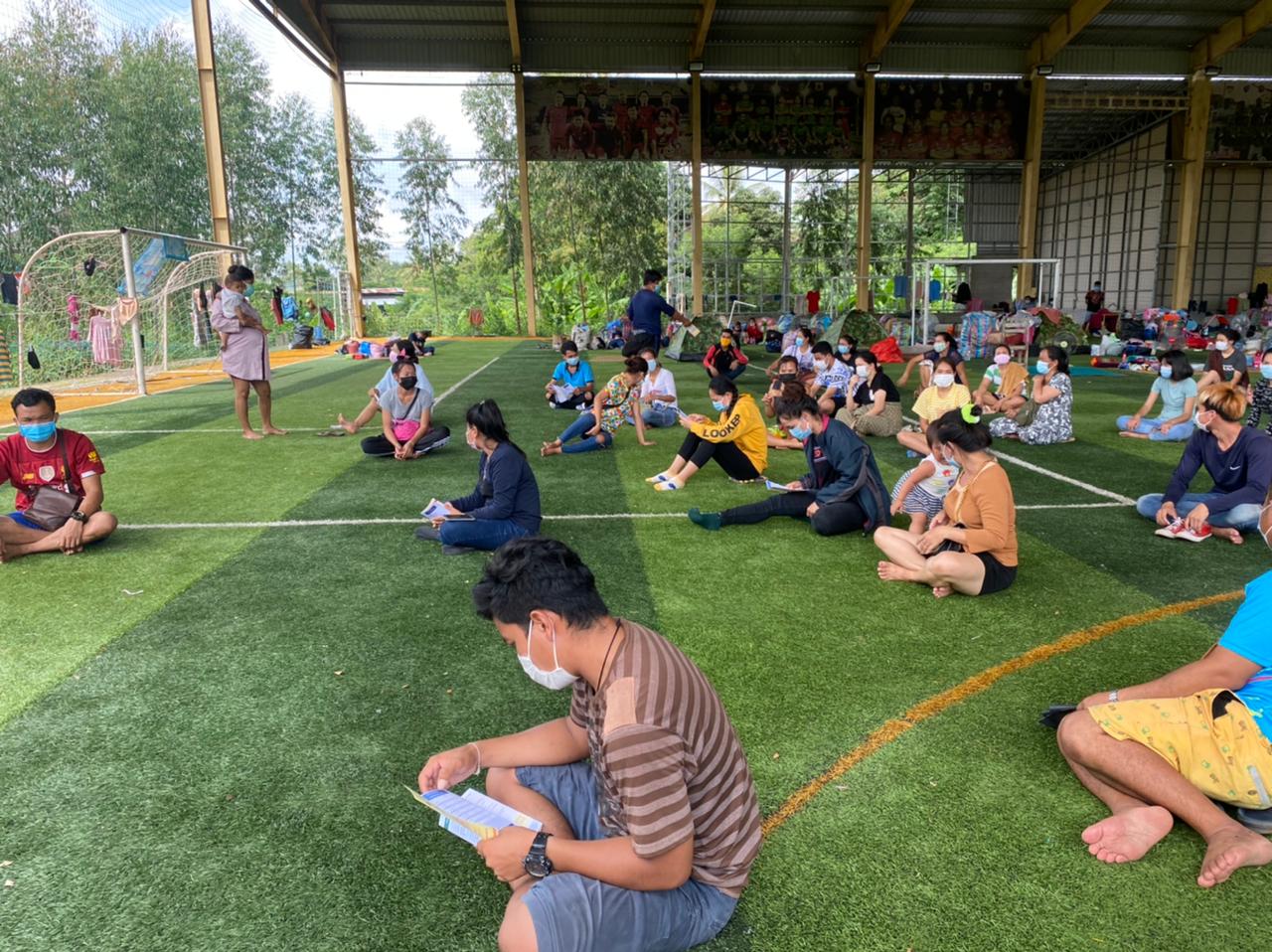
IOM supported over 7,000 returnee migrants (3,721 female) and 15,000 community members in Champassak and Savannakhet provinces with safe migration information, skills development and employment support.
Migrants at the quarantine centre in Champasak province, received packages in collaboration with Ministry of Labour and Social Welfare to support them through mandatory quarantines.
Mr Viengsamay, Head of KM21 Quarantine Centre in Champassak province, said: “The information related to safe migration, provided daily through quarantine centre speakers was very useful to understand more about the situation working abroad and to avoid the risk in human trafficking and labour exploitation.”
Beneficiaries in Champassak and Savannakhet provinces accessed packaged information on safe migration, COVID-19, and employment support, in-person; via radios and loudspeakers, and print. Skills training was delivered by civil society organizations, Sengsavang and Village Focus International to prepare migrants for jobs in Lao PDR and beyond.
The programme funded interventions are scheduled to be completed by September 2022.
***********************
About UNFPA
UNFPA is the United Nation's sexual and reproductive health agency, works in more than 150 countries including Lao PDR, to achieve zero maternal deaths, zero unmet need for family planning, and zero gender-based violence.
About UN-Habitat
The United Nations Human Settlements Programme (UN-Habitat) works in over 90 countries to promote transformative change in cities and human settlements through knowledge, policy advice, technical assistance and collaborative action. In Lao PDR, UN-Habitat’s work focuses on basic services (water and sanitation), urban development, climate change, disaster risk reduction and emergency response.
About IOM
The International Organization for Migration (IOM) is the United Nation’s leading agency on migration and the leading intergovernmental organization in the field of migration, working closely with its key stakeholders -migrants and Member States -to promote humane, safe, and orderly migration. It does so by providing services and advice to governments and migrants from an integral and holistic perspective, including links to development, to maximize the benefits and opportunities of migration and reduce its challenges. Established in 1951, IOM now has more than 400 field locations in 170 Member States; including in Lao People's Democratic Republic where IOM has operated since 2001 with an office in Vientiane capital and field staff stationed in Champasak and Savannakhet Provinces.
For more information please contact:
Ms. Zahra Benyahia
Partnerships and Innovation Specialist, UNFPA Lao PDR
Ms. Moe Mashiko
Programme Management Specialist, UN-Habitat Lao PDR
Ms Kannika Inthaxoum
Senior Communications Assistant, IOM Lao PDR

